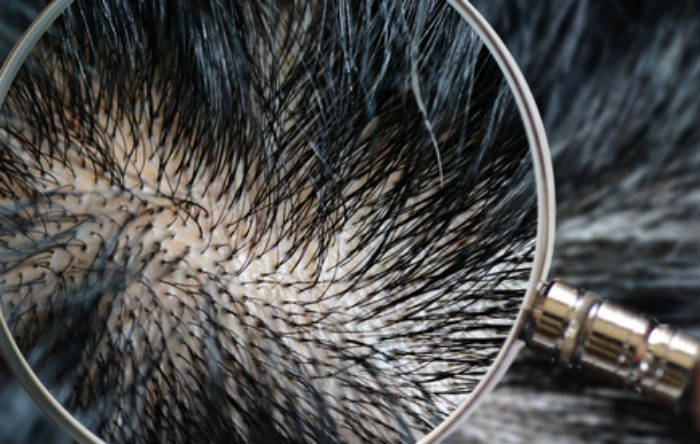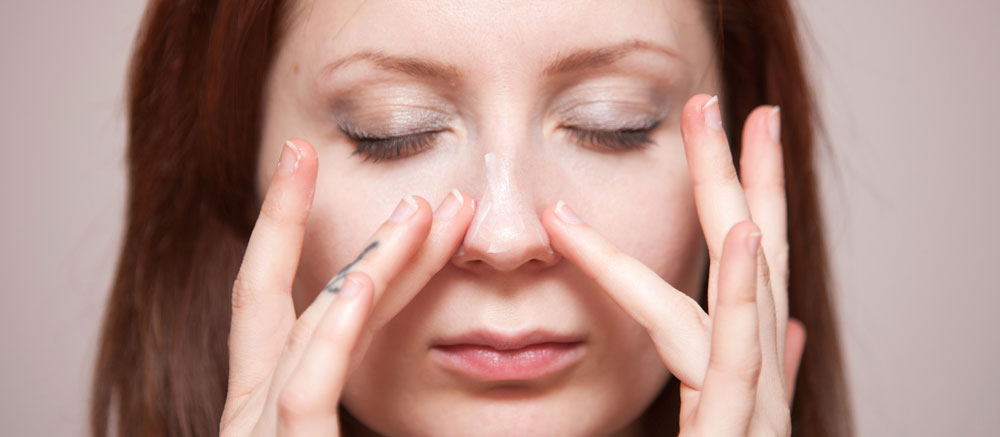Can Vaseline be used for Dry Scalp?
A dry scalp is a common problem, particularly among those who also suffer from dandruff or live in harsh climates with low humidity. Using a lubricating product like Vaseline, a brand name of petroleum jelly, may help relieve some of your scalp dryness, but it can also cause other problems. Ask a dermatologist what treatments are best for your dry scalp, and also discuss any additional scalp problems you experience in conjunction with the dryness.
Causes
Many people are born with dry skin and scalps, and this can be exacerbated by a variety of factors like cold weather, wind, showering in hot water, and using shampoos and hair products that contain harsh or soap-like ingredients. Dandruff and similar conditions can cause the skin on your scalp to flake, which produces itching and irritation in addition to dryness.
Function of Vaseline
Vaseline is an emollient that can shield your skin from the elements that can make dryness worse. It forms a protective layer on your skin to keep the moisture in and the irritants out, working to hydrate your skin throughout the day and protect it from drying out further. It claims to help your skin nourish itself naturally and get rid of any chapping or irritation associated with dryness.
Considerations
According to the American Academy of Dermatology, using a pomade or oil-based product, like petroleum jelly, can help moisturize your scalp, but it may also aggravate dandruff and make the problem worse. Furthermore, if you get the Vaseline on your forehead, it may clog your pores and cause breakouts. Oil-based products can also lead to a bacterial scalp infection known as folliculitis, which is characterized by red, pus-filled bumps around your hair follicles.
Application of Vaseline for dry scalp
To avoid triggering acne blemishes on your forehead, apply the Vaseline at least 1 inch behind your hairline. If you notice it begin to irritate your scalp or cause folliculitis to develop, stop using it and contact a doctor. If you experience dandruff along with a dry scalp, shampooing with a product medicated with zinc pyrithione or tar can help control this condition.
Warnings
If your scalp is red and inflamed or you notice your hair begin to fall out, see a dermatologist and tell him about all the symptoms you are experiencing. Similarly, if you experience any adverse reaction to Vaseline, discontinue using the product and seek medical attention. Discuss home treatments with a doctor before you start applying them.
Vaseline for Dry Nose
Vaseline is a type of petroleum jelly that is often used as a lubricant, so it would make sense that Vaseline would be a good solution for a dry nose. Your nose may become dry for several reasons, including allergies, a cold or the weather. Regardless of the cause, it’s important to know the pros and cons of using Vaseline to treat nose dryness.
Why is Vaseline good for Dry Nose?
Vaseline can work wonders at clearing up the dryness. The slick jelly will coat the tissues in the nose and moisturize them. It will create a barrier that prevents air from reaching the tissues in the nose, which causes dryness. Vaseline also helps to lock in the natural moisture produced by the nose tissues.
Why is it Risky?
Vaseline is generally safe to use in your nose, but only for short periods of time. Using it over extended periods of time can cause problems. The Vaseline doesn’t stay just in the nose; instead, it travels to other areas of the body. It typically drains out of the nose and is swallowed. This isn’t likely to cause a problem in the short term, but over an extended period of time, it can affect the digestive system and decrease the amount of vitamins your body is absorbing. Another risk comes from the possibility of inhaling the petroleum jelly. Once it gets into the lungs, it can cause damage like pneumonia and lung scarring.



